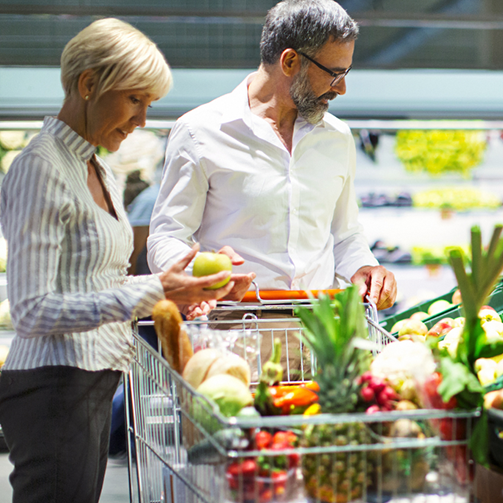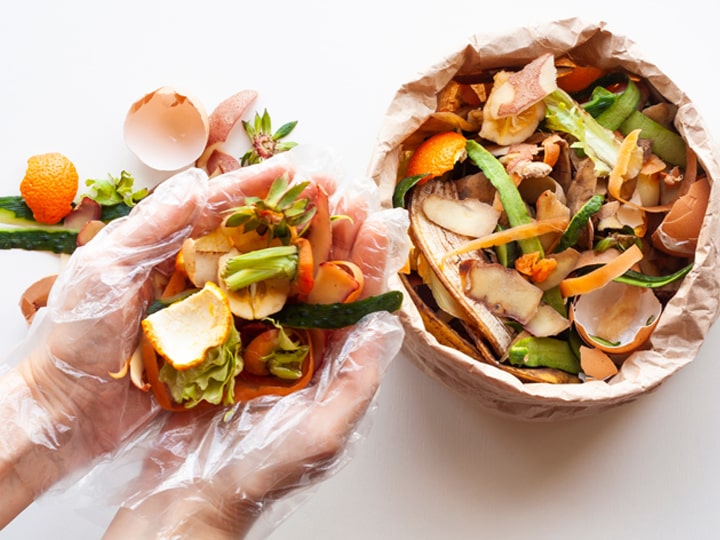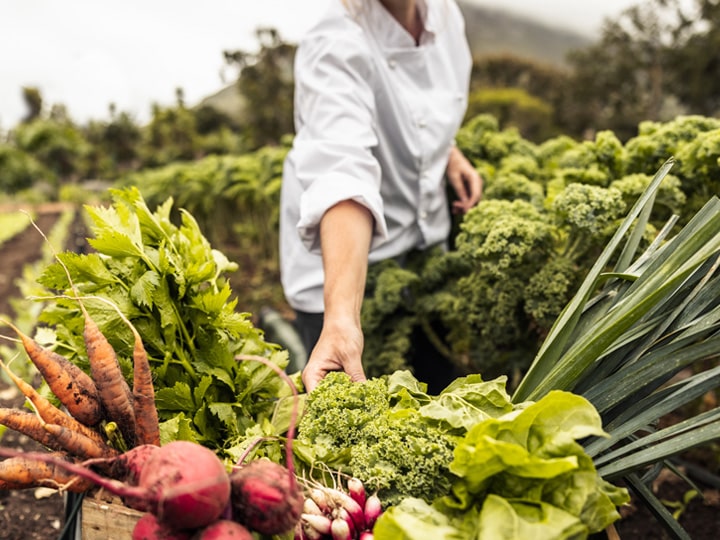Sustainable and Affordable Tips
A few helpful tips have been identified from the Sustainable Food Barometer to help the everyday Canadian on their path to sustainable eating. Using whole-plant ingredients, such as grains, fruits, tubers, beans, legumes, and nuts, are cheaper, and often locally sourced. Canned and frozen options remain a delicious and nutritious way to eliminate food waste, and by embracing seasoning, Canadians can extend their culinary repertoire to international proportions. Conversely, animal meat proteins are the most expensive and have the biggest carbon footprint.
Current Eating Habits and Practices
Price remains by far the top concern when Canadians go to the grocery store, followed by taste and nutritional value. Half of Canadians associate sustainable food with improved health through a healthier, more balanced diet. Therefore, more Canadians are willing to make compromises when consuming sustainable dishes and products – and half say they would be willing to eat a sustainable dish even if it took longer to prepare.
Obstacles to Sustainable Eating
While the desire to change may be strong, Canadians still must consider their financial situations and overcome their entrenched eating habits. Misconceptions around cost are the top obstacle preventing more consumption of sustainable products – two-thirds of Canadians wrongly believe sustainable options are too costly.
Overall, the insights provided by Sodexo Canada’s Sustainable Food Barometer indicate Canadians are interested in moving towards a healthier, more sustainable future. Using the information provided in the Sustainable Food Barometer, Canadians can make choices for a healthier planet and more sustainable future.








